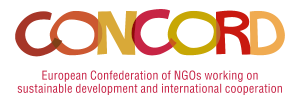
By Anita Gurumurthy – IT for Change
This is an opinion piece. The opinions expressed are the author’s own. CONCORD Europe has not had any influence on the author or their views and on any opinions or conclusions drawn in this post.
All text in brackets are citations from the European Commission proposal of January 2022.
The European Commission’s proposal for a European Declaration on Digital Rights and Principles for the Digital Decade – an important milestone towards a foundation for our shared digital world – reflects a predictable unease. It mirrors the fraught politics of our times; the tall order to recover the planet and people from the insatiable profit motive of digital behemoths. It also carries the mark of European parochialism – an inward-looking solidarity “for a better quality of life, innovation, economic growth and sustainability” that ignores Europe’s responsibility in the universal crisis of digital capitalism today.
The document eschews any reference to inequality, embracing in its preamble a largely depoliticised worldview of digital transformation. Succumbing to buzzwords, the Declaration overvalorises “innovation” and “business” through a narrow economism, patching, rather glibly on top, “human rights”, “inclusion” and “putting people at the centre”. Widely discussed ideas about the social and public value of data, and cooperative value creation by the infinite communities nurtured by the internet, find no place in the Declaration.
Data needs to be managed democratically. Rules are needed to govern data value chains in (globally) just ways – determining what data can/cannot be collected and how data can/cannot be processed. The aspirational ideal of a “dynamic, resource-efficient and fair (digital) economy” is thus contingent on how rights and freedoms, privileges and obligations, are managed holistically, without reducing privacy to the red herring it has become in a neoliberal digital paradigm that individualises social questions and reduces societal self-determination to “users’ rights” and “individual control” .
Unless the economy of data proceeds from its moorings in a just sociality, the commitments to connectivity, digital education and skills, fair and just working conditions, or public services online may not amount to a genuine transformation.
Nothing gives away the Declaration’s political and moral expediency more clearly than its vision to construct a “model of digital transformation that strengthens the human dimension of the digital ecosystem with the Digital Single Market as its core”. Unequivocally putting business interests ahead of a just society, this decisive pronouncement perpetuates market supremacy evident in Europe’s data governance approaches. The Declaration’s soft pedaling of the accountability of digital corporations – including liability for human rights violations as well as extraterritorial obligations – belies any ostensible claim to special “European values” about democracy and the social contract between state, market and citizens.
Embedded in a neo-liberal worldview, the Declaration runs counter to the key elements of the European Pillar of Social Rights (EPSR) that it claims to build on. Without explicitly articulating its commitment to the foundational principles of gender equality, long term care, and equality of opportunity in the EPSR, it loses a crucial opportunity to build a coherent vision of a digitally transformed society.
Europe’s geo-economic ambitions – as reflected in the Declaration – also render questionable the document’s intent to take its vision of digital transformation to Europe’s “international relations”. Europe’s truculent push for the Joint Statement Initiative on E-commerce shows how it seeks to bulldoze its way through digital rule-making on cross-border data flows, undermining multilateral rule-making and the sovereignty of developing countries. Meanwhile, the EU GDPR’s ‘adequacy clause’ erects market barriers for developing countries, undercutting their ability to participate in emerging digital value chains. The Declaration’s ambition to serve as “an inspiration… to guide digital transformation which puts people and their human rights at the centre throughout the world” rings hollow, coming across as mere opportunism and double speak. The vagueness of this commitment and of the accountability around it raise questions about whether it will truly influence EU external action initiatives, such as the new Global Gateway. Relatedly, calls to “sustainability” obfuscate the environmental and social impacts of metals mining in developing countries for Europe’s green and digital transition.
Only three years before the 20th anniversary of the World Summit on the Information Society, the European Declaration on Digital Rights and Principles for the Digital Decade seems to miss a unique opportunity for a bold and paradigm-shifting framework to guide future debates on global digital justice. The European Parliament and the Council now have the chance to reverse this. Are they up to the challenge?
About the author:
Anita Gurumurthy is a founding member and executive director of IT for Change, where she leads research on the platform economy, data and AI governance, democracy in the digital age, and feminist frameworks on digital justice. Anita actively engages in national and international advocacy on digital rights and contributes regularly to academic and media spaces. She serves as advisor and expert on various bodies including the United Nations Secretary-General’s 10-Member Group in support of the Technology Facilitation Mechanism, the Paris Peace Forum’s working group on algorithmic governance, Save the Children’s ICT4D Brain Trust, and Minderoo Tech & Policy Lab‘s Board.
About IT for Change:
IT for Change is an NGO based in India. It aims for a society in which digital technologies contribute to human rights, social justice and equity.
Resources:
To read CONCORD’s priorities on the Declaration, click here.
